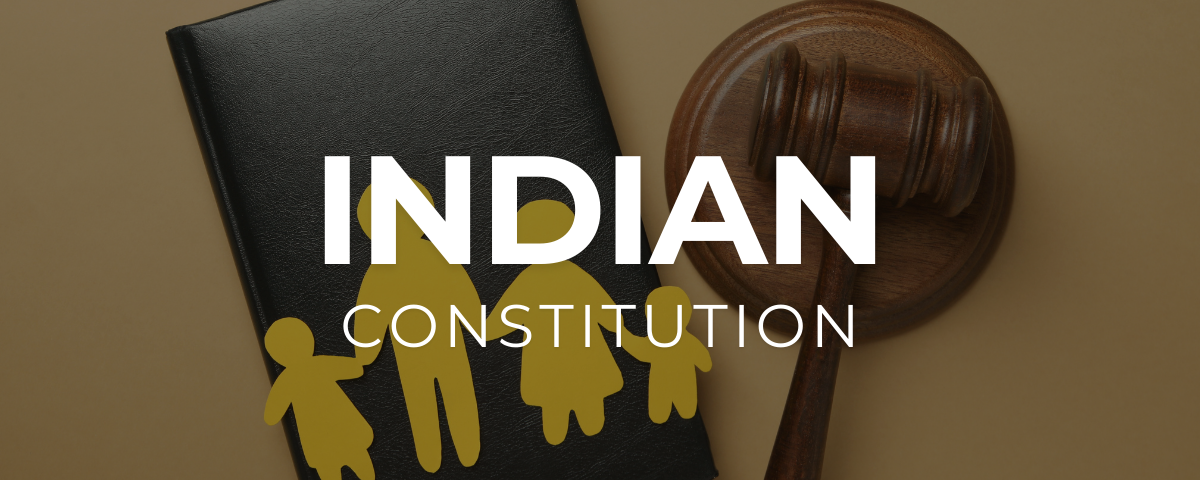Preamble of the Indian Constitution
The Preamble of the Indian Constitution stands as the soul of India’s democratic framework. It is a brief introductory statement that encapsulates the values, vision, and guiding principles of the Constitution. As one of the most important parts of India's founding document, the Preamble defines the country's aspirations and sets the tone for the laws, rights, and governance structures that follow.
What is the Preamble of the Indian Constitution?
The Preamble is a short, concise paragraph that serves as the introduction to the Indian Constitution. It declares the Constitution’s source of authority, “We, the People of India,” emphasizing the idea of popular sovereignty. This signifies that the Constitution derives its legitimacy from the people of India and not from any monarch or foreign power.
The Preamble sets forth the objectives of the Constitution, highlighting the commitment to securing justice, liberty, equality, and fraternity for all citizens. It is a reflection of the values that India sought to establish post-independence, ensuring the ideals of democracy, secularism, and social equality.
Key Components of the Preamble
- Sovereign: The term signifies that India is independent and has the right to make decisions without interference from any external authority. This highlights India’s position as a fully autonomous nation on the global stage.
- Socialist: Added by the 42nd Amendment in 1976, the term socialist refers to the state’s commitment to reducing inequalities in wealth, status, and opportunity. It underscores the importance of providing equal access to resources for all citizens, regardless of their socio-economic background.
- Secular: This means that India does not have an official state religion. Every citizen has the right to practice, profess, and propagate any religion of their choice. This ensures religious freedom and tolerance, promoting unity in diversity.
- Democratic: The Preamble asserts that India is a democracy. This means that the people have the supreme authority to elect their leaders and determine the direction of the nation through regular, free, and fair elections.
- Republic: The term republic indicates that India does not have a hereditary monarchy. The head of the state is elected, reinforcing the idea that political power should reside with the people.
- Justice: The Preamble calls for justice in all spheres—social, economic, and political. It aims to eliminate exploitation, ensure equality before the law, and provide fair treatment for all, regardless of caste, creed, or gender.
- Liberty: The Preamble guarantees liberty of thought, expression, belief, faith, and worship. This provision safeguards individual freedoms and rights, ensuring that every citizen can live with dignity and autonomy.
- Equality: India’s Constitution guarantees equality of opportunity and equality before the law. This prevents discrimination based on gender, caste, religion, or race, fostering a society of inclusion and fairness.
- Fraternity: The Preamble concludes with the promise of fraternity, ensuring dignity of the individual and the unity and integrity of the nation. This emphasizes national unity while celebrating the diversity of India’s cultural, linguistic, and ethnic backgrounds.
- Preamble of the Indian Constitution pdf download in English
- Preamble of the Indian Constitution pdf download in Hindi
Why is the Preamble Important?
The Preamble holds immense significance because it serves as the moral compass for the Constitution. While it is not legally enforceable, it provides the foundational philosophy upon which the entire legal structure is built. Every law, policy, and decision taken by the government is rooted in the core values set out in the Preamble.
It acts as a guiding principle for constitutional interpretation, providing clarity in cases where specific provisions are contested. Judges and lawmakers refer to the Preamble to interpret the intent and spirit behind various laws, ensuring they align with the fundamental values of justice, liberty, and equality.
The Preamble and Its Role in Shaping India
The Preamble of the Indian Constitution reflects India’s unique position in the world as a nation committed to diversity, democracy, and equality. In a country with over a billion people, comprising different religions, cultures, and languages, the Preamble plays a vital role in uniting the country under shared values.
It underscores the commitment to social justice and the protection of human rights, ensuring that every citizen has access to basic rights, irrespective of their background. Whether it’s promoting economic equality through affirmative action or ensuring freedom of expression, the Preamble lays the foundation for a fair and just society.
Moreover, as India continues to evolve, the Preamble serves as a benchmark for ongoing reforms and changes. Whether addressing the challenges of modernization, economic development, or social equality, the core ideals of the Preamble remain steadfast.
In Summury
The Preamble of the Indian Constitution is more than just an introductory statement; it is the embodiment of the dreams and aspirations of the people of India. By declaring India as a sovereign, socialist, secular, democratic republic, it sets the tone for a society based on justice, liberty, equality, and fraternity. As the cornerstone of India’s legal and democratic framework, it continues to guide the nation toward the realization of its values and principles.
For those interested in the philosophy of the Constitution or seeking to understand the bedrock of India’s democratic ideals, the Preamble provides a powerful, timeless reference. Through its words, we are reminded of our shared commitment to a just and inclusive society—one that celebrates the unity in diversity that defines India.
By aligning every action, policy, and decision with the principles of the Preamble, India strives to create a society that is not only democratic in form but also just and equal for all its citizens.
Test your knowledge with our comprehensive MCQs on the Preamble of the Indian Constitution.
MCQs on the Preamble of the Indian Constitution Part-I
MCQs on the Preamble of the Indian Constitution Part-II
MCQs on the Preamble of the Indian Constitution Part-III





